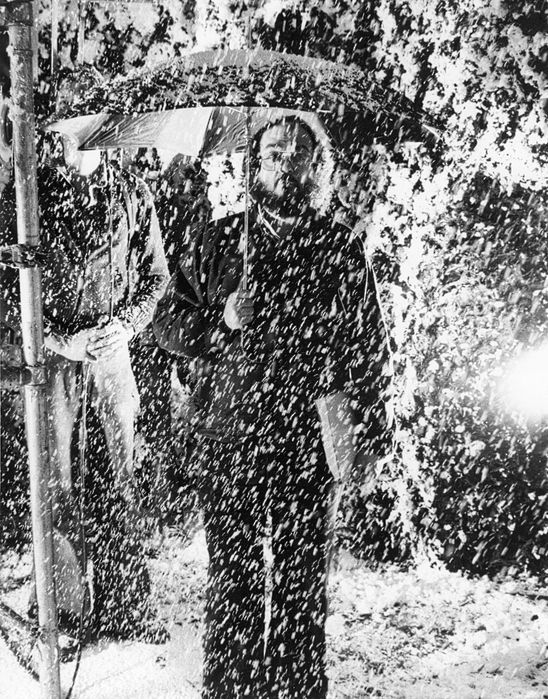‘DAMN YANKEES’ AT SYRACUSE ONCENTER: SMALL IS BIG
BY DAN VALENTI
PLANET VALENTI NEWS AND COMMENTARY
(ED. NOTE: For this column, THE PLANET is suspending comments for obvious reasons. This review of Damn Yankees is not for a local staging but for a production now under way in Syracuse, N.Y., where, incidentally, this site has gathered a following. Our normal comment component returns in The Weekend Edition. We post this review in support of small theater everywhere, but this one in particular –one that offers consistently sparkling work outsized for the restrictions imposed by a modest budget).
(FORTRESS OF SOLITUDE, WEDNESDAY JULY 30, 2019) — Size matters.
When a director takes on the challenge of putting on a large-scale musical in a small venue, you have the recipe for either triumph or disaster. Theatrical confines tend to eliminate the in-between. In the hands of someone who knows what he or she is doing, the squeeze results in Art, which, as Andre Gide observed, is born of constraint and dies from too much freedom. In the hands of a hack … well, do we have to finish?
This brings us to Damn Yankees, the current production of Syracuse Summer Theater at the 140-seat Bevard Studio theater at the Oncenter complex downtown. THE PLANET, you may recall, has a history with this play, having been cast as Mr. Welch, the GM of the floundering Washington Senators (“first in war, last in the American League”) in the expansive, expensive production staged in 2003 on the diamond at historic Wahconah Park. That production featured a 4,000-sq.-foot stage with two levels, a revolving set, an orchestra pit for the 19-piece band, and a bunch of Broadway pros. In contrast at the Bevard, director Garett Heating has about 400 square feet of hardwood floor fit for a dribbling exhibition by Curley Neal; one level excluding some adept use of the balcony’s forced perspective; and a gauzy curtain to hide the nine-piece band (a tight unit led by Dan Williams, piano/conductor). So is it disaster or triumph?
As Lola might put it, we’ll place “the emphasis on the latter.”
How does Heating accomplish this two-act legerdemain? Through excellent casting, a deep understanding of George Abbott and Douglass Wallop’s book, and skilled assistants. As they used to say in the baseball scouting business of a guy who could spot talent, Heater’s a good judge of horseflesh.
———- 000 ———-
The play, adapted from Wallop’s novel The Year the Yankees Lost the Pennant (music and lyrics by Richard Adler and Jerry Ross; book by George Abbott and Wallop), involves a clever twist on the Faust legend. As middle-aged Joe Boyd (Geoff Ameele) endures another losing season from his beloved Senators, he begins muttering, idly offering his soul if his team could only beat those damn Yankees. Be careful what you wish for.
Life has placed Boyd in an existential twilight zone, young without vitality, old without the oncoming decay. Such is middle age. Enter, on cue from nowhere, Mr. Applegate (Jimmy Wachter), a.k.a., You Know Who. Applegate offers Joe a chance at stardom as 22-year-old Joe Hardy (Joe Gauzza), the long-ball slugger who will personally lead the Nats to the American League pennant. Just like that, Boyd walks out on his long-suffering baseball widow, Meg (Mary Musial — a baseball name if ever there was one), and the race is on, both for the pennant and for Joe’s soul. Musial, by the way, is a Stan The Man of voice. In this production, she has the best set of pipes.
These four characters assume a set-up role in the play’s opening. Their interaction supplies the remainder of the action with its tone, vitality, and energy. A flop here, and the high riser turns into a pitch in the dirt. If we don’t buy into this quartet, the remainder slogs along on soggy, spongy ground. So how does this Tinker-to-Evers-to-Chance of Ameele-to-Musial-to-Wachter-to-Gauzza pull off the around-the-horn quadruple play? With style and panache, with sparks that come from shared destinies both as actors and from the characters they’re playing. Chemistry, they call it when a team jells, in this case the byproduct of a “druggist’s” formula supplied by Wachter’s striving, devilish Applegate. Pharma, as they say, is a bitch.
Wachter the straw that stirs the drink, a condemned man’s Reggie Jackson. He avoids the spasms of the Jerry Lewis Applegate, and comes in over the top of Ray Walston’s sly, subdued portrayal of the Devil, a cutesy approach better suited for one’s favorite Martian than light-bearing Lucifer. Wachter silkily splits the difference here, channeling Paul Lynde via Charles Nelson Reilly and grafting them onto his own formidable acting chops.
Wachter wrings out comic nuance from his lines with pond-edged diction and effusive body language (ah, if that ribcage could talk). Of all the fables we as humans coin, none is so sanctimonious than those that one way or another deal with Old Scratch, who has been used and abused for ages to keep people in line. Wachter comes off as if he knows this, seen in Applegate’s many instances of self-righteous outrage, for example, when Joe Hardy gets accused of years ago taking a bribe to throw games in the Mexican League. Irony of ironies: Applegate’s the one who plants the story in the first place with nosy reporter (oxymoron time) Gloria Thorpe, a bouncy, smile-dazzling, sparkly eyed Sara Weller.
There’s enough magic for the audience to easily suspend whatever disbelief it may have (Lord help anyone who attends an upbeat musical who has trouble in this regard), and we buy into Boyd’s bargain. We realize before he does that Boyd must walk through a swamp before he’s thorough — and through. On the surface, he’s batting .480 with power and vaulting the Senators to the top. Underneath, Applegate’s utter prophecies bog him down in the sucking mud. He can’t walk. He can’t stagger. All he can do is hit the cover off the ball, run the bases, and stumble over, under, and around his personal life.
Homesick for Meg, young Joe Hardy takes his old room, in his old house, that Meg has rented out, not sure she will ever see her old Joe again. Ah, but …
… but she recognizes something in the 22-year-wunderkind, something familiar about his body (interesting that “Boyd” and “Body” are but one transposition apart). A worried Applegate calls in an associate, the temptress Lola (Katherine Clare Bell), to deliver Joe to the fire and brimstone. Whatever Lola wants, Lola gets — except Joe Hardy. Not only does she fail to corrupt him; she falls for the lad.
———- 000 ———-
Gauzza and Bell yin-and-yang their respective roles almost to the point where it will wrench your back, or at least your imagination. Gauzza looks impossibly young and innocent. Bell, on the other hand, struts about on heels as an object lesson of wizened temptation in a snug, savory body. Corpus delecti, as the leather lungs in the stands might put it. Gauzza’s earnestness as Joe Hardy cannot be denied, with a naivete coming off as (we guess) accidentally “strategic.” In other words, one senses that Gauzza, baby face and all, isn’t so much acting the part of Joe Hardy as inhabiting it. This works well in the context of the play, since it’s the very quality that foils Applegate and wins the heart of Lola.
Now about the singing. In his numbers (“Goodbye, Old Girl,” “Man Doesn’t Know,” “Near to You,” “Two Lost Souls”), Gauzza hits the right notes, but he needs to project more, something that might be as easy as opening his mouth wider to let the sound escape. In singing mode as opposed to speaking his lines, the lad comes off as tentative, a flooding hesitance one might expect in a school recital. His narrow-mouthed articulations, especially in the higher registers requiring sustain, remind one of the Synchro Vox process used in the old Clutch Cargo and Space Angel cartoons (look it up, young’uns; it will make you both scream laugh and creep you out). Funny thing is, it’s okay. We don’t blink when Joe Hardy isn’t Enrico Caruso. We just want him to hit homers.
Katherine Bell carries her tunes (“A Little Brains, A Little Talent,” “Whatever Lola Wants,” “Two Lost Souls”) with polish, posturing, and presence. She sings with confidence, the notes fitted to their growth (those emotive risings and fallings common to all torch singers). She wields “Whatever Lola Wants” as a whip, a dirty-flirty ditty that won’t take no for an answer. She towers over Joe, ties his hands with his pants, and leaves him, inversely, wanting to run home (forget home runs) and, what, mend his socks? Funny bit, that, one of the production’s show stoppers. In this tune, Bell and Gauzza become a new comedy team: Lola and Hardy.
———- ooo ———-
The Senators ball club, a dozen talented singers and dancers; the ensemble of four lithe young women; and the chorus of supporting characters provide the base and backdrop of the action. A few of standouts, doctor. First is Dominic Fortunato, who has a double acting role as well as serving the production as dance co-captain with ensemble member Kelsie Deyo. Fortunato’s breathtaking leaps and bounds require a new verb, and not only because of his daring in such cramped quarters: He “genekellys” through the dance routines, even accumulating Jordanesque hang time on his jumps. He’s adds a “wow” factor to Jodi Bova-Mele’s choreography, which manages to brilliantly utilize every inch of the pinched floor space. The dancing looks big.
Second is Emmily Budge in the ensemble, especially her Mary Tyler Moore leg kicks in the show-stopping party scene in the “Two Lost Souls” number (great jazz drum solo by Justin Ezzo). Budge’s kicks might reach the Astrodome ceiling. Third we have Carmen Viviano-Crafts as Sister. She’s a loud, jabbing, laugh riot who nearly steals every scene she’s in, even when she’s spear carrying. For example, watch her moves when she’s in the upper background on “Who’s Got the Pain?” She’s Carol Burnett with a Mary Wickes bite, a comedienne throwaway who can’t be thrown away.
———- ooo ———-
In embracing the directorial task of staging Damn Yankees in the Bevard Studio, Garret Heater risks a climb to Mt. Parnassas, that mound from ancient Greek myth held sacred by both Dionysus and Apollo, eros and ethos, body and soul, Applegate and Boyd, Lola and her young slugger. Heater tweaked the script — not an update, exactly (and thankfully) — and made this enjoyable, fun production, a story not of demonic possession — the funny kind, to be sure, and not Linda Blair head spinning — but one of second chances. As Boyd finds out, you CAN go home again. It’s a message we love hearing and all want to hug.
THE PLANET can’t mention everyone, but in this “everyone gets a medal” era, it’s nice to give the entire cast and crew a ribbon with oak leaf cluster. Better yet, make that a set of Most Valuable Player awards.
———- ooo ———-
What: Damn Yankees
Where: Syracuse Summer Theatre, Bevard Studio at the Oncenter
Length of performance: 2 hours 30 minutes (includes one 15-minute intermission)
Family guide: Mature audiences – 16 and up.
Remaining performance: Aug. 2, 3 and 4.
Ticket information and reservations: 315-435-2121, Oncenter box office and www.ticketmaster.com.
———- ooo ———-
Credits: Produced by the Oncenter. Stage Direction, Set and Costume Design by Garrett Heater. Choreography by Jodi Bova-Mele. Production Management by Josh Gadek. Set Construction, Tallon Larham. Stage Management by Tallon Larham. Stage Management by Taylor Flurschultz. Photography by Amelia Beamish. Sound Design by Anthony Vadala. Costumes by Sue Berger and Julia Berger. Costume Design by Garrett Heater and Jeanette Reyner. Techincal Direction by Jeff Riegelman. Sound Mixing by Charlie Shatzkin. Light Operation by Bill Mercer. Orchestra: Dan Williams, Piano-Conductor; Shayne Knight, Synthesizer; Zach Moser, reeds; Rhys Henson, trumpet; Cheryl Goewey, flute, piccolo, clarinet, alto sax; Dan Skidmore, guitar; Matt Rossi, bass; Justin Ezzo, drums, percussion; Lindsey Ezzo, clarinet, tenor sax.
Starring Joe Gauzze, Jimmy Wachter, Katherine Clare Bell, Mary Musial, Sara Weiler, Geoff Ameele, Carmen Viviano-Crafts, Shannon Tompkins, Dan Stevens, Tallon Larham, Tom Magnarelli, Josh Gadek, Corey Hopkins, Tyler Piper, Jonah Patrick, Ryan Dunn, Shane Stensland, Dominic Fortunato, Michael O’Neill, Mark Re, Julie Coggiola, Kelsie Deyo, Heather McNeil, Emmilly Budge, and Ava Shore.
A REMINDER: COMMENTS FOR THIS COLUMN ONLY HAVE BEEN SUSPENDED. REGULAR COMMENTING RESUMES WITH THE WEEKEND EDITION.
——————————————————————————————————————-
“To pay attention is our endless and proper work” — Mary Oliver.
“OPEN THE WINDOW, AUNT MILLIE.”
LOVE TO ALL.
The views and opinions expressed in the comment section or in the text other than those of PLANET VALENTI are not necessarily endorsed by the operators of this website. They are the sole responsibility of their respective authors. PLANET VALENTI assumes no responsibility for such views and opinions, and it reserves the right to remove or edit any comment, including but not limited to those that violate the website’s Rules of Conduct and its editorial policies. PLANET VALENTI shall not be held responsible for the consequences that may result from any posted comment or outside opinion or commentary as provided in Section 230 of the Communications Decency Act and this website’s terms of service. All users of this website — including readers, commentators, contributors, or anyone else making use of its information — hereby agree to these conditions by virtue of this notice. When PLANET VALENTI ends with the words “The Usual Disclaimer,” that phrase shall be understood to refer to the full text of this disclaimer.














